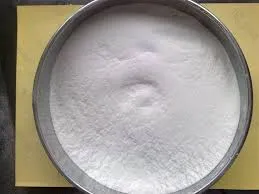
Nov . 23, 2024 14:51 Back to list
is hpmc water soluble
Is HPMC Water Soluble? Understanding the Properties and Uses of Hydroxypropyl Methylcellulose
Hydroxypropyl methylcellulose (HPMC) is a versatile cellulose ether that has gained popularity in various industries due to its unique properties. One of the key characteristics of HPMC is its solubility in water, which plays a crucial role in its applications.
Is HPMC Water Soluble? Understanding the Properties and Uses of Hydroxypropyl Methylcellulose
In the pharmaceutical industry, HPMC is frequently used as a thickening agent and a film-forming agent. Its water solubility allows it to be easily incorporated into liquid formulations, such as oral solutions and suspensions. Additionally, HPMC serves as a binder in tablet formulations, ensuring uniformity and consistency during the manufacturing process. Its solubility provides controlled release properties, making it beneficial for designing sustained-release dosage forms, allowing medications to be released over extended periods.
is hpmc water soluble

In the food industry, HPMC is often utilized as a food additive. It acts as an emulsifier, thickener, and stabilizer, enhancing the texture and quality of various food products. Its water-soluble nature allows it to blend seamlessly into sauces, dressings, and dairy products, improving mouthfeel and preventing ingredient separation. Furthermore, HPMC is a popular ingredient in vegetarian and vegan food products as a substitute for gelatin, given its plant-derived origins and water solubility.
Another significant application of HPMC lies in the construction industry. HPMC is used as an additive in cement and mortar formulations, where it enhances workability and prevents the rapid evaporation of water. The water-soluble characteristic of HPMC aids in the formation of a cohesive mixture, ensuring better adhesion and improved performance of construction materials.
In the cosmetics and personal care sectors, HPMC can be found in various products, including creams, lotions, and gels. Its ability to dissolve in water provides emulsification and thickening properties, contributing to the product's stability and application performance. As consumers increasingly seek water-based products, the relevance of HPMC as a formulation ingredient continues to grow.
In conclusion, Hydroxypropyl methylcellulose is indeed water-soluble, which underpins its extensive use across multiple industries. From pharmaceuticals to food, construction to cosmetics, HPMC's solubility and functional properties make it an essential component in numerous applications, reflecting its versatility and importance in modern product development.
-
Versatile Hpmc Uses in Different Industries
NewsJun.19,2025
-
Redispersible Powder's Role in Enhancing Durability of Construction Products
NewsJun.19,2025
-
Hydroxyethyl Cellulose Applications Driving Green Industrial Processes
NewsJun.19,2025
-
Exploring Different Redispersible Polymer Powder
NewsJun.19,2025
-
Choosing the Right Mortar Bonding Agent
NewsJun.19,2025
-
Applications and Significance of China Hpmc in Modern Industries
NewsJun.19,2025







